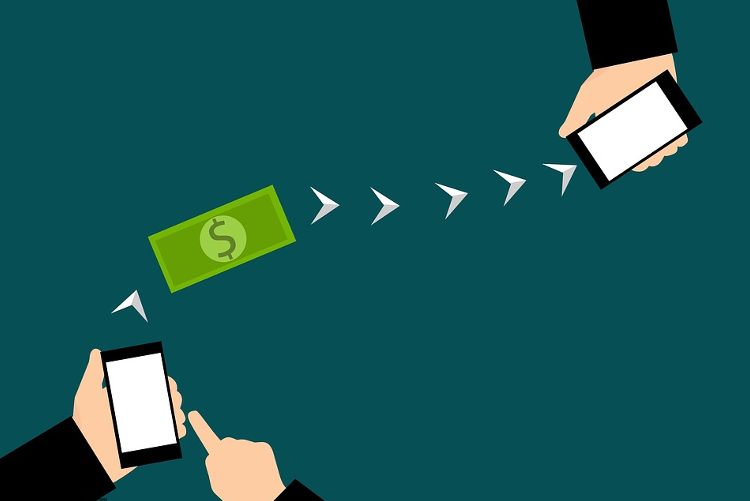If you’re a business owner, then you know that processing payments are essential to keeping your company running. But with all of the different payment processing options available today, it can be difficult to figure out which option is right for your business. In this guide, we’ll walk you through B2B payment processing and show you how to choose the right option for your company.
So if you are interested in learning more about B2B payment processing, keep reading!
What is B2B Payment Processing?
B2B payment processing is simply the process of handling payments between two businesses. This can include everything from invoicing to setting up recurring payments. In most cases, B2B payment processing will involve some type of integration with your accounting software. This allows you to automate your payments and keep track of your finances in one place.
There are a few different types of B2B payment processing, which we will discuss in more detail below.
Different Types of B2B Payment Processing
Here are some of the different types of B2B payment processing
Accounts Receivable Financing
Accounts receivable financing is a type of B2B payment processing that allows you to sell your invoices at a discount to get paid immediately. This can be a helpful option if you need cash flow quickly and don’t want to wait for 30, 60, or 90 days for your invoices to be paid.
Credit Card Processing
Credit card processing is another common type of B2B payment processing. This allows your customers to pay by credit card, which can be helpful if they don’t have the cash on hand to pay for your products or services upfront. Credit card processing typically comes with a fee, so you’ll need to factor that into your pricing.
Electronic Funds Transfer
Electronic funds transfer (EFT) is a type of B2B payment processing that allows you to transfer funds electronically between two parties. This can be done through a bank or a third-party provider. EFT is often used for recurring payments, such as subscriptions or membership fees.
Invoice Financing
Invoice financing is similar to accounts receivable financing, but instead of selling your invoices, you’re taking out a loan against them. This can be a helpful option if you need cash flow quickly and don’t want to wait for your customers to pay their invoices.
Digital Payment Platforms
Digital payment platforms, such as PayPal or Square, are becoming increasingly popular for B2B payments. These platforms allow you to send and receive payments electronically, which can be helpful if you do a lot of business online. Some of them also have invoice and accounting features, which can be helpful for small businesses.
Get A Free Consultation
Book a free call with us to discuss how we can help you expand in new regions, scale, and get the cash flowing in your business.
How to Choose the Right Type of B2B Payment Processing
Now that you know a little bit more about the different types of B2B payment processing, it’s time to choose the right option for your business. Here are a few factors to consider when making your decision:
Your Business Model
The first thing you’ll need to consider is your business model. Are you selling physical products? Digital products? Services? This will help you narrow down your options. For example, if you’re selling physical products, you’ll probably want to choose a payment processor that can integrate with your shopping cart software.
Your Sales Volume
Your sales volume is another important factor to consider. If you’re a small business with a low volume of sales, you might not need all the features that a larger business would need. Conversely, if you’re a large business with a high volume of sales, you’ll need to make sure your payment processor can handle that volume.
Your Customer Base
Your customer base is also important to consider. Do you primarily sell to other businesses? Consumers? This will help you narrow down your options. For example, if you sell to other businesses, you might want to choose a payment processor that offers accounts receivable financing.
Your Pricing
Some payment processors charge per transaction, while others charge a monthly fee. You’ll need to consider your pricing structure when choosing a payment processor. For example, if you charge a flat fee for your products or services, you’ll probably want to choose a payment processor that charges a flat fee as well.
Your Location
Some payment processors only work in certain countries or regions. If you do business internationally, you’ll need to make sure your payment processor can handle that. In this situation, digital payment options like PayPal might be your best bet.
Key benefits of B2B payment processing
There are a few key benefits of B2B payment processing that you should be aware of. These include:
- Increased Efficiency
- Improved Cash Flow
- Reduced Costs
- Increased Customer Satisfaction
- Improved Security
Conclusion
While there are several benefits to B2B payment processing, it’s important to choose the right option for your business. Consider the factors listed above to make sure you select the best possible solution for your needs. Make sure to do your research and compare different providers before making your final decision. Thanks for reading!
If you are looking for a secure payment solution for your business, then look no further. We specialize with many years of experience in providing robust payment solutions for businesses of any size. We only use up-to-date technologies to keep you updated with the latest trends. This way we ensure to give your customers the best possible experience. Book a free consultation call with us today, and let us take your business to the next level!
Get A Free Consultation
Book a free call with us to discuss how we can help you expand in new regions, scale, and get the cash flowing in your business.





